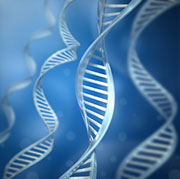Researchers anticipate genetic testing of children with autism will continue to increase
WEDNESDAY, Sept. 2, 2015 (HealthDay News) — A pair of genetic tests, chromosomal microarray analysis and whole-exome sequencing, could help parents and doctors better understand the numerous challenges that a child newly diagnosed with autism might face throughout life. The findings were published in the Sept. 1 issue of the Journal of the American Medical Association.
To examine the tests’ potential, Bridget Fernandez, M.D., chair of genetic medicine at the Memorial University of Newfoundland in St. John’s, Canada, and colleagues used them to assess 258 unrelated children diagnosed with autism spectrum disorder. Their average age was 4.5 years.
Separately, each test was able to track potential genetic causes of autism about equally — 9.3 percent for chromosomal microarray analysis and 8.4 percent for whole-exome sequencing. But the combined tests were effective 15.8 percent of the time. And that effectiveness more than doubled when assessing children with subtle physical signs of developmental problems such as single palmar creases and low-set ears, according to the researchers.
Fernandez and her colleagues anticipate that genetic testing of children with autism will continue to increase. She and some other experts believe that, based on the study results, doctors should encourage these tests for children who show physical signs of developmental problems. Doctors may be better able to care for children with autism using these tests, because they will have a basic genetic understanding of the child’s condition, Fernandez told HealthDay.
Several authors disclosed financial ties to the pharmaceutical and diagnostics industries.
Copyright © 2015 HealthDay. All rights reserved.








